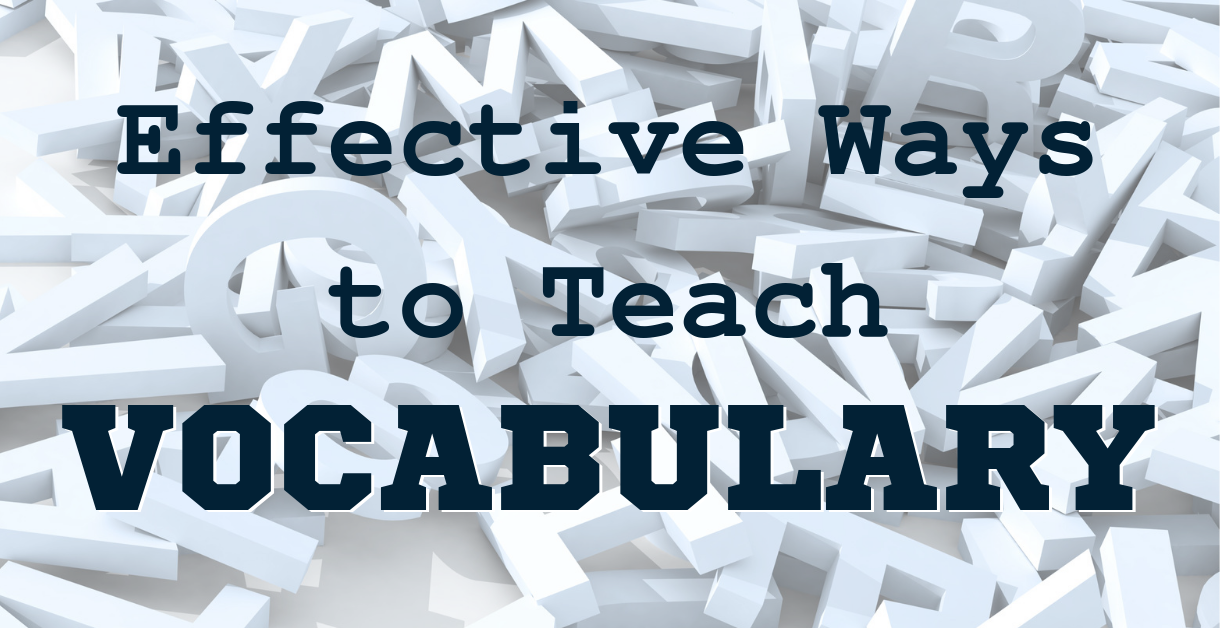One major challenge that students face in understanding nonfiction text is that the vocabulary is often unfamiliar. Learning isolated vocabulary words out of context is not helpful to students. The human brain automatically seeks patterns and likes to make connections. Students need to learn how to make connections between words. They also need to be taught word learning skills so that they can infer the meanings of new words. There are some interesting, and fun ways that you can enhance vocabulary teaching.
It's Greek (or Latin) to Me
Word learning skills include teaching students about affixes which include prefixes, roots, and suffixes. Ninety percent of English words with more than one syllable are based on Latin roots. The remaining 10% are mostly Greek.
A single Latin root generates 5-20 English words. Using traditional methods of memorizing vocabulary, you can only learn about 8-10 words a week. From a single root, students gain 5-20 words. When students understand roots, they can analyze word meaning.

For example, teach students that "terre" means land. Then have students figure out the meanings of: terrain, terrace, terrarium, terrestrial, extraterrestrial, subterranean, Mediterranean, terracotta, and terra nova.
Students love challenges. Here are a few simple word learning activities that promote comprehension:
Before Reading
• Categorizing Vocabulary: Write the new vocabulary from an article your child(ren) will be reading on a chart. Then have your child(ren) figure out what the text will be about. They can check to see if they were correct as they read.
• Word Splash: Choose key words and concepts from the text. Write these groups of words in boxes on a chart. Have your kids predict how these words/concepts work together. After reading, ask your child(ren) how their ideas changed and why.
While Reading
• Visualize Vocabulary: Have your child(ren) identify words they feel are important as they read and draw pictures to depict their importance.
• Word Webbing: Have your child(ren) create webs to show they understand the connections between different words. Here's an example from the animal kingdom:

• Word Riddles: Have your child(ren) select words from the text and write riddles with 3 or more clues, such as synonyms, number of syllables, root meaning, antonyms, etc.
After Reading
• Word Charades: Write new vocabulary on index cards and place them face down on a table. Have your child(ren) each pick a "secret" card to act out. See who can figure out what the word means. That player is next!
• 20 Questions: Place vocabulary words cards in a bag. The person who’s “it,” picks a word. Others guess the word by asking up to 20 yes/no questions. The person who figures the word out is now “it” and goes next.
![]() Harriet Isecke, a literacy expert and award-winning educator and author, is the CEO of Readorium. Readorium is an interactive online program that teaches kids strategies for understanding nonfiction, as it guides them through science books that automatically adjust to their reading level as they use the program. Parents can view their children’s progress 24/7. Readorium is serious reading played like a game!
Harriet Isecke, a literacy expert and award-winning educator and author, is the CEO of Readorium. Readorium is an interactive online program that teaches kids strategies for understanding nonfiction, as it guides them through science books that automatically adjust to their reading level as they use the program. Parents can view their children’s progress 24/7. Readorium is serious reading played like a game!
Try Readorium free for 14 days then save 20% HERE on award-winning Readorium at the Co-op. Plus, until 8/31/19, receive 3 bonus months with your subscription.


